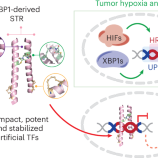
Articles
-
1 month ago |
nature.com | Zeyu Li |Wang Han |Yimin Hou |Hongjue Li |Zhiguo Jiang |Lijun Yang | +2 more
Identifying governing equations from observational data is crucial for understanding nonlinear physical systems but remains challenging due to the risk of overfitting. Here we introduce the Bi-Level Identification of Equations (BILLIE) framework, which simultaneously discovers and validates equations using a hierarchical optimization strategy. The policy gradient algorithm of reinforcement learning is leveraged to achieve the bi-level optimization. We demonstrate BILLIE’s superior performance through comparisons with baseline methods in canonical nonlinear systems such as turbulent flows and three-body systems. Furthermore, we apply the BILLIE framework to discover RNA and protein velocity equations directly from single-cell sequencing data. The equations identified by BILLIE outperform empirical models in predicting cellular differentiation states, underscoring BILLIE’s potential to reveal fundamental physical laws across a wide range of scientific fields. In this study the authors introduce BILLIE, a bi-level framework for equation identification that decouples term selection and quantification, enhancing robustness and accuracy in modeling nonlinear systems. BILLIE outperforms existing methods in handling complex systems and imperfect data, as demonstrated through both simulations and real-world biological applications.
-
Apr 1, 2024 |
nature.com | Wei Zhang |Wei Cheng |Bei Zhang |Barbara Sahakian |Ruohan Zhang |Zeyu Li | +4 more
Food preferences significantly influence dietary choices, yet understanding natural dietary patterns in populations remains limited. Here we identifiy four dietary subtypes by applying data-driven approaches to food-liking data from 181,990 UK Biobank participants: ‘starch-free or reduced-starch’ (subtype 1), ‘vegetarian’ (subtype 2), ‘high protein and low fiber’ (subtype 3) and ‘balanced’ (subtype 4). These subtypes varied in diverse brain health domains. The individuals with a balanced diet demonstrated better mental health and superior cognitive functions relative to other three subtypes. Compared with subtype 4, subtype 3 displayed lower gray matter volumes in regions such as the postcentral gyrus, while subtype 2 showed higher volumes in thalamus and precuneus. Genome-wide association analyses identified 16 genes different between subtype 3 and subtype 4, enriched in biological processes related to mental health and cognition. These findings provide new insights into naturally developed dietary patterns, highlighting the importance of a balanced diet for brain health. Using a large sample from the UK Biobank, the authors investigate the effects of dietary patterns on multiple aspects of brain health and mental health.
Try JournoFinder For Free
Search and contact over 1M+ journalist profiles, browse 100M+ articles, and unlock powerful PR tools.
Start Your 7-Day Free Trial →